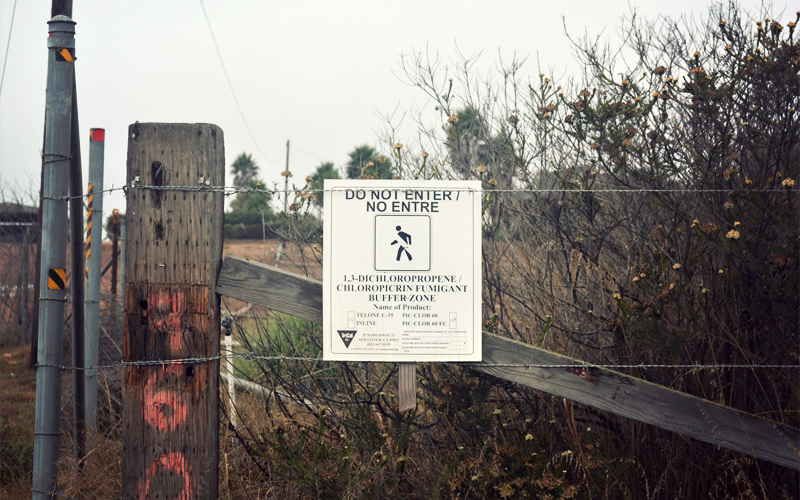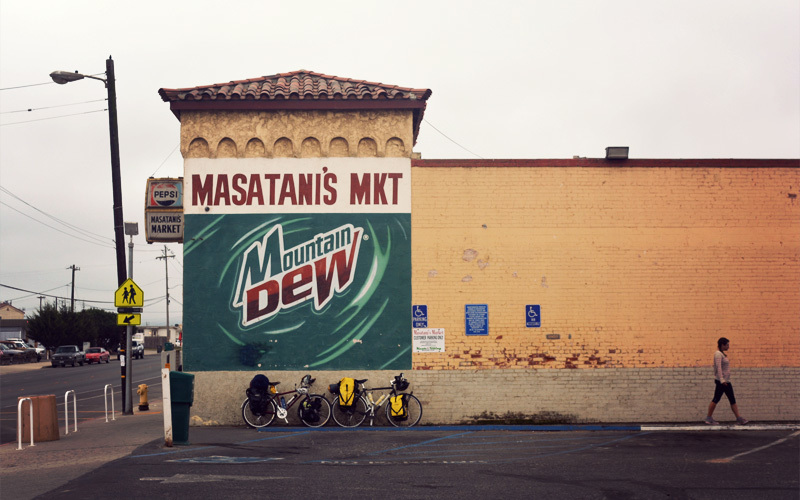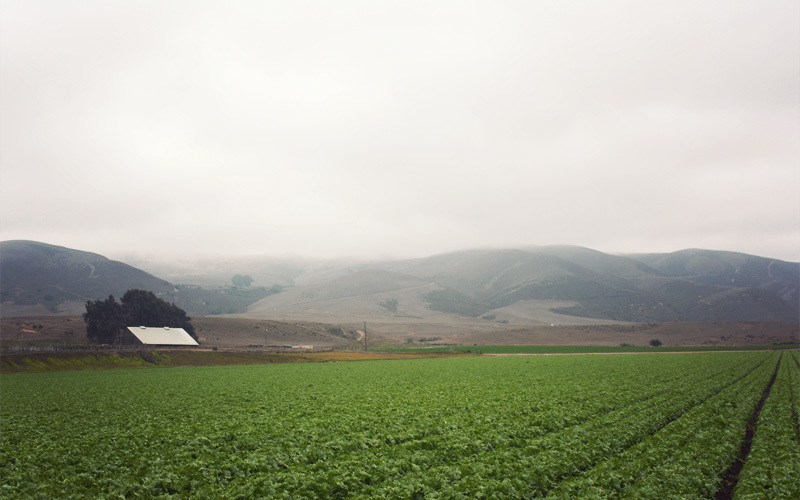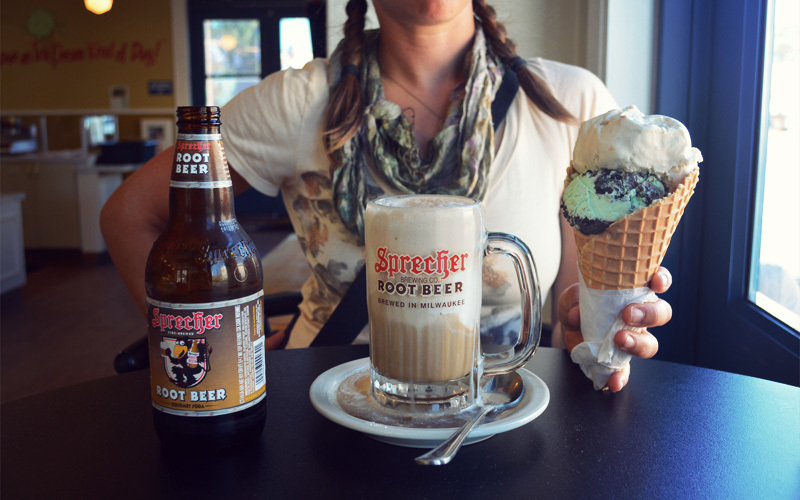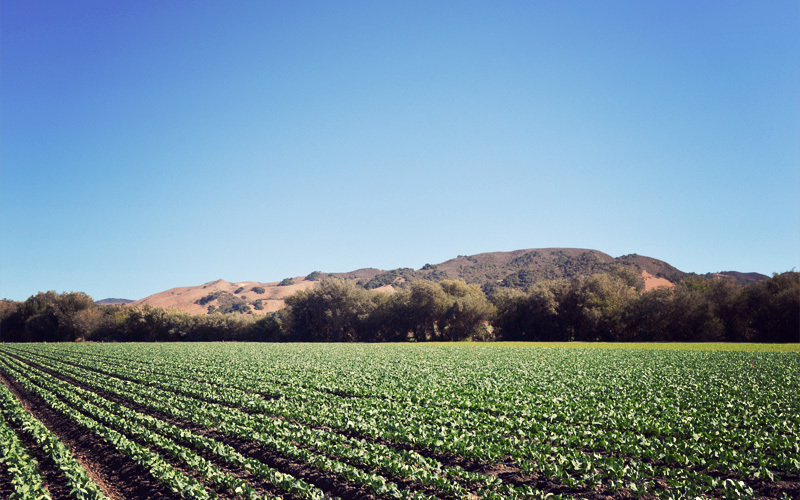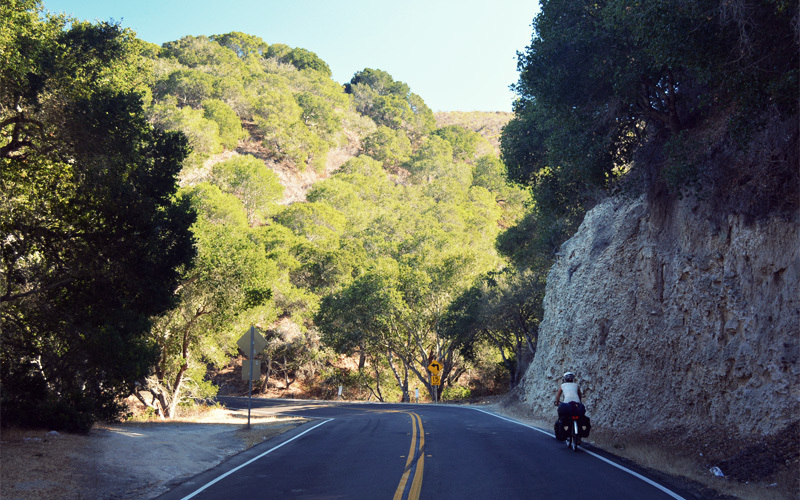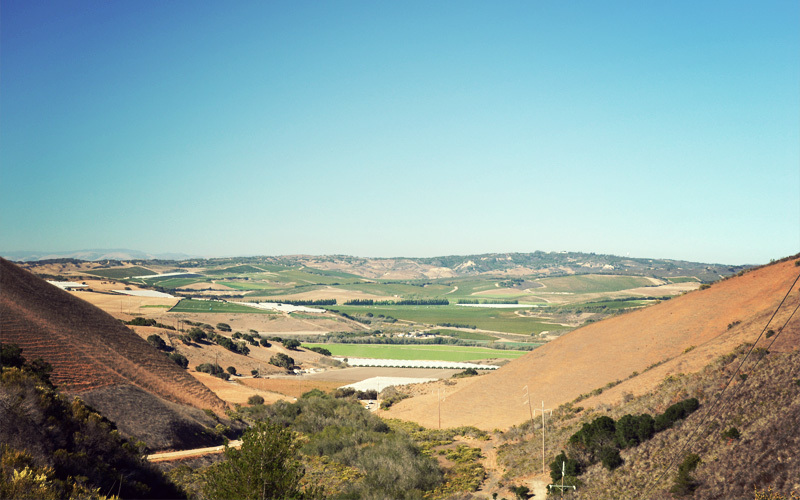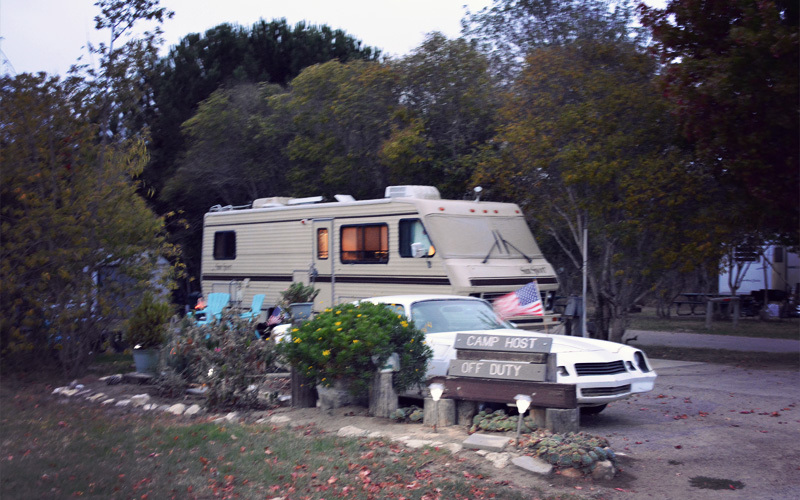September 24, 2014
Day 29: Oceano, CA to Lompoc, CA
It's hard to decide what makes it tougher to sleep. It might be the roar of diesel engines, all of which have been made louder by aftermarket exhaust systems Maybe it's all of the muffled thumping of bass that pumps from cars that pass with their windows down and their cheap sound systems turned all the way up. It could be the people yelling at each other in the mini-mart parking lot like it's a matter of life and death. Or possibly it's the freight trains that shake the ground and pass so close to the tent that it sounds as if they're about to charge through the door flaps.
Only a small slice of Oceano touches the ocean, so instead of expensive homes and golf courses it's mostly filled out with mobile home parks, small grocery stores with bars on the windows, and run-down old homes. About the only way to know for sure that we're close to the beach is that the roadside is lined with sand instead of dirt.

| Heart | 0 | Comment | 0 | Link |
Soon the ocean drops out of sight and we ride on the narrow shoulder of a busy highway. That means instead of dramatic vistas and the sound of waves crashing into rocks we get an oil refinery, a carbon plant, self-storage complexes, RV storage lots, angry pit bulls chained to stacks of pallets in front of dilapidated old mobile homes, and large fields of strawberries full of workers who pick to the sound of Spanish-language radio that blasts out of stereos placed on top of the cabs of dirty flatbed trucks.

| Heart | 0 | Comment | 0 | Link |
When we coast down into a valley late in the morning we find ourselves transported to another world again, one filled with all of the kale, strawberries, lettuce, broccoli, tractor-trailers, processing plants, mud-stained roads, portable toilets, and buses for transporting farm workers that come with large-scale agriculture. In the middle of it we pass through the friendly 700-person town of Guadalupe, where we fall into conversation with a kind older woman who, once she finds out where we've come from and where we're headed, make her eyes big and breathes in deep and then crosses herself across the shoulders and chest. As she wave her hands up in the air, she explains how she's putting a halo of white light around us, to keep us safe on the roads ahead that will take us to Los Angeles. There's something sweet and reassuring about that.
Then the woman tells us in extravagant detail about an incident that happened in the town she lived in as a teenager, where a distracted driver reached down to find a cassette tape and stick it into the radio, and when the driver looked back up she saw in front of her a group of four cyclists that within a split second she had run over and then killed. This is less sweet and reassuring.
From Guadalupe we head to the south and the east, where rectangles of green extend as far as the flat land will allow before the hills rise up brown and yellow and disappear into the bottoms of the clouds beyond. Along the way we ride among the constant traffic of harvest season, which looks like it's at or near its peak. Maybe the blessing and the white halo of light weren't such a bad idea after all.
By the time we leave Orcutt in the middle of the afternoon the clouds have disappeared and the full force of the sun descends on us. But again we're lucky with the weather; even though it's the hottest part of the day, the temperature never pushes past eighty. In the fields that parallel the highway we continue to see farm workers by the hundreds. What I notice today, as I've noticed at all of the fields we've passed since leaving Portland, is that almost every farm worker drives a car, and that most of these cars are as good, if not better, than the cars driven by my friends and family back home. It's a reminder that even when you're near the bottom of the economic ladder in the United States, the accessibility of cheap food, mobile phones, television, and cars mean that poverty is a relative term in this country.
We travel Harris Grade Road instead of Highway 1 to cross over the line of low mountains that stand between us and Lompoc. Even though it's a long hill and a winding hill, and even though the highway takes a more direct route to Lompoc for most people, the road is still packed with traffic in both directions. Back roads, it turns out, just don't exist on the California coast.
When we get to Lompoc we find an inoffensive city of 40,000 people, with the chain motels, big grocery stores, strings of mini-malls, and fast food places like Taco Bell and Panda Express that go along with that. We also find bike lanes and a path next to the river that allow us to skirt the edge of town without inadvertently trapping ourselves in the parking lot of a Ross Dress for Less.
By the time we reach the park at the edge of town, a cold wind has pushed gray clouds in from the ocean and they've parked themselves above us, which makes an already depressing place seem that much more flat and sad. First we check out the tent area. There are a few down-on-their-luck men with thick beards and unwashed hair set up back near the river, but that doesn't seem strange because at least half the people we see in the rest of the park look as if they live there at least semi-permanently. There are also angry dogs tied up in front of motorhomes that don't seem like they'd run for longer than fifty miles without breaking down. When I say hello to an older woman who walks past with her dog, I get in return not a response but a look that says Why the fuck are you even talking to me? The campground host drives a dirty white 1978 Chevy Camaro that's parked in front of an even more tired, even more dirty mid-sized RV, which in one glance sums up the character of the park. It sounds unpleasant, which it is, but it's also right in line what what I figured we'd find at a public campground in a city this big. Until we cross back over to the state parks of the coast tomorrow it's the best we're going to get.
The cold sends us diving for the satisfying comfort of the tent and the warmth of the double sleeping bag. There we drink tea, plan an early escape over the mountains to the coast, and listen in on the pair of couples who sit and talk in front of the travel trailer across from us, which is bigger than any apartment I've ever lived in. They talk about their giant TVs, the fake patios that they set up in front of their RVs whenever they roll into a campground, and how they'd really like to drive home to Las Vegas, but the wife has a leg infection and they can't go until it clears up, because I guess all of the doctors are hiding out here in Lompoc. Everyone involves seems pleased with the conversation.
Today's ride: 49 miles (79 km)
Total: 1,294 miles (2,082 km)
| Rate this entry's writing | Heart | 2 |
| Comment on this entry | Comment | 0 |
